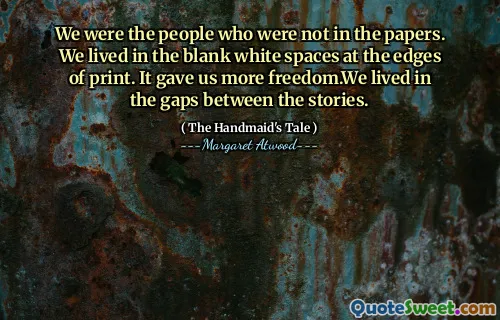Its racist policies, for instance, were firmly rooted in the pre-Gilead period, and racist fears provided some of the emotional fuel that allowed the Gilead takeover to succeed as well as it did.
In Margaret Atwood's "The Handmaid's Tale," the roots of Gilead's oppressive regime are deeply embedded in the societal attitudes that preceded its rise. The racist policies implemented in Gilead were not entirely new; they were extensions of the prejudices and fears prevalent in earlier times. This historical context showcases how racism was already woven into the fabric of society, making Gilead's takeover not just a sudden shift but rather a culmination of long-standing fears and discriminatory beliefs.
Furthermore, these ingrained racist sentiments played a significant role in facilitating Gilead's establishment. The societal anxieties surrounding race contributed to a collective acceptance of Gilead's authoritarian rule, demonstrating how deeply entrenched racism can empower oppressive movements. Atwood's narrative warns against the dangers of allowing such biases to fester, as they can ultimately lead to the collapse of social order and the rise of tyranny.






